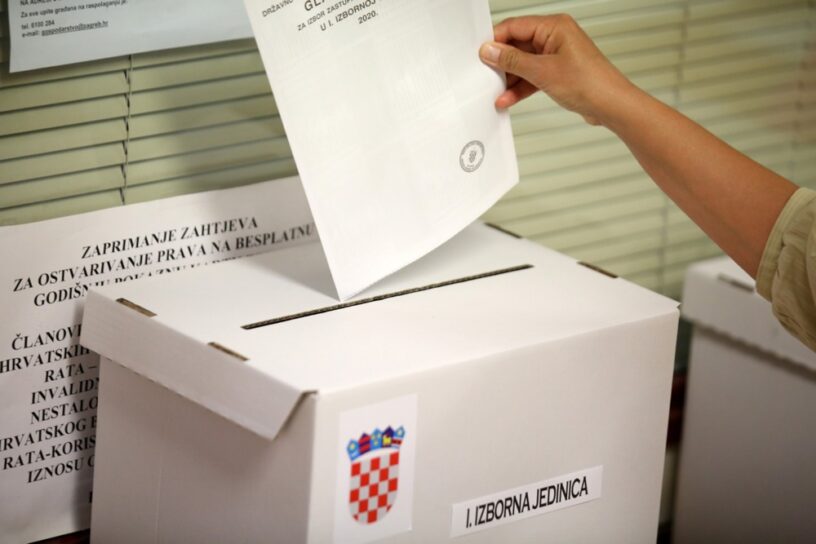In elections this week, the ruling Croatian Democratic Union, HDZ, seeks a third consecutive mandate – while the President of the Republic, Zoran Milanovic, the informal leader of the opposition, is doing everything to prevent it.
Croatia is preparing for parliamentary elections on April 17. It will be the 11th parliament elected since the first democratic multi-party elections held in Croatia in 1990.
Some 3,733,283 voters are registered to vote. Of these, 3,511,086 are resident in Croatia and 222,197 are without residence in Croatia but are actively registered.
Voters can choose candidates for 12 constituencies. Besides 140 seats representing ten territorial constituencies, eight seats in parliament are guaranteed to national minorities and three to the diaspora, making 151 seats in total.
The ruling Croatian Democratic Union, HDZ, hopes to to win a third consecutive mandate with Prime Minister Andrej Plenkovic at the helm.
The politician who, after the election, can present the President of the Republic, Zoran Milanovic, with 76 signatures of members of parliament will be given a mandate to form a new government.
The election silence in Croatia lasts from Tuesday to Wednesday, April 17, at 7 p.m., i.e. until around 6,500 polling stations close.
While the silence is in effect, any election promotion, publication of evaluations of election results and previous, unofficial election results, as well as the publication of photos in the media, statements, and interviews of candidates, etc., are prohibited.
Fines are not prescribed for breaking the silence in parliamentary elections, but, with some minor deviations, it was mostly respected in past elections.
With the beginning of the election silence, 17 days of official campaigning will end with the vote, which, instead of the usual Sunday, is being held this time on Wednesday.
In another twist, President Milanovic intended to run on the list of the opposition Social Democratic Party, SDP, as the party’s prime ministerial candidate.
However, the Constitutional Court ruled that his candidacy for prime minister while holding the office of President is incompatible with his constitutional position and the principle of the separation of powers.
As a result, Milanovic is not a formal participant in the parliamentary elections and his name is not on the electoral list. But in almost daily statements he said that after the elections he intends to form a new government and has attacked the current HDZ government, the Prime Minister and their policies.
Croatian voters will have will their say on Wednesday, and abroad on Tuesday and Wednesday.
Citizens without residence in Croatia are voting over two days and will elect three of the 151 members of parliament. 110 polling stations will be open for them to vote in. The first polling stations were opened on Monday at 10 pm Croatian time, in Canberra, Sydney, and Melbourne, and the last in Chicago and Los Angeles, early on Thursday morning.
Abroad, parliamentary elections will be held in 41 countries, but the majority of such votes come from neighbouring Bosnia and Herzegovina.



